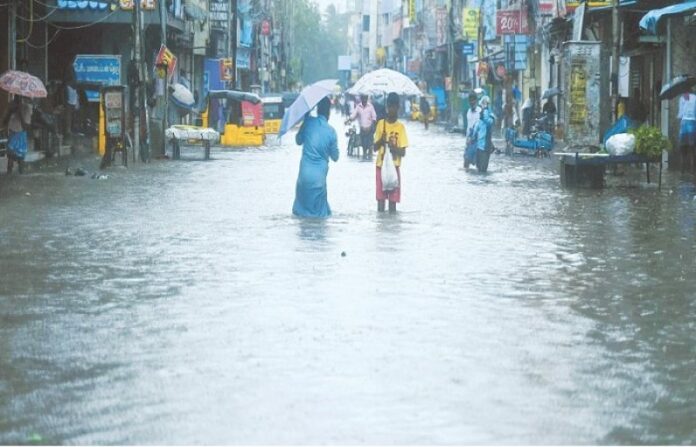Heavy rains lashed India’s south and a major airport shut operations as cyclone Fengal made landfall on Saturday.
Cyclones — the equivalent of hurricanes in the North Atlantic or typhoons in the northwestern Pacific — are a regular and deadly menace in the northern Indian Ocean.
India’s weather bureau said “the forward sector of spiral bands associated with the cyclone has entered into the land” with a forecast of sustained winds of 70-80 kilometres an hour (43-50 miles per hour). Authorities also said there was a “moderate to high flash flood risk” over a few areas.
Several areas in the state of Tamil Nadu were flooded while authorities extended closure of the main airport in capital city Chennai till Sunday. “Due to stormy winds, the road is heavily covered with sand and motorists are advised to proceed with caution,” traffic police in Chennai posted on social media platform X.
Chennai and surrounding areas experienced heavy rains, leading to waterlogging in residential neighbourhoods and key roads. Suburban areas like Velachery and Hasthinapuram were particularly affected, with rainwater entering homes, forcing residents to take preventive measures.
Schools and colleges in numerous districts in the state were shut and at least 471 people had been moved to relief camps, local media reported. Fengal skirted the coast of Sri Lanka earlier this week, killing at least 12 people including six children.
Scientists have warned that storms are becoming more powerful as the world heats up due to climate change driven by burning fossil fuels. Warmer ocean surfaces release more water vapour, which provides additional energy for storms, strengthening winds.
A warming atmosphere also allows them to hold more water, boosting heavy rainfall. But better forecasting and more effective evacuation planning have dramatically reduced death tolls.
